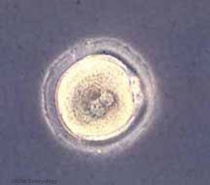Foundations Practical - Introduction to Human Development
| Embryology - 19 Apr 2024 |
|---|
| Google Translate - select your language from the list shown below (this will open a new external page) |
|
العربية | català | 中文 | 中國傳統的 | français | Deutsche | עִברִית | हिंदी | bahasa Indonesia | italiano | 日本語 | 한국어 | မြန်မာ | Pilipino | Polskie | português | ਪੰਜਾਬੀ ਦੇ | Română | русский | Español | Swahili | Svensk | ไทย | Türkçe | اردو | ייִדיש | Tiếng Việt These external translations are automated and may not be accurate. (More? About Translations) |
Introduction
Human development is one of the most exciting topics to study not only as a medical student, but also for our fundamental understanding of the human body. It is important at this stage of your studies to have a broad understanding of the timing of events in human development, so that you can understand normal development, organ development and when things go wrong (abnormal development). Many of the concepts introduced broadly today will be covered in detail in Beginnings, Growth and Development (BGD).
From this 
|
to this  in 9 months in 9 months
|
This is sometimes not an easy topic to study with many very specific terms, dynamic processes and transient structures.
- New terms or concepts that you don't understand?
Use the Glossary link (at the bottom of each page), Terms list (at the bottom of some pages) or search window (on the top of each page).
| Other Foundations links |
|---|
| The following lecture, practical and practical support pages for Foundations can be found on this current site.
|
Keep coming back to embryology (and this site) as you progress through your studies and it will eventually make more sense!
Objectives
- General understanding of the early events of human development.
- Understand the key divisions, events and timecourse of human development.
- Understand the concept of mixed embryonic origins of different tissues and organs.
- General understanding of the term “critical periods” of development.
Foundations Practical: Introduction | Week 1 and 2 | Week 3 and 4 | Week 1 to 8 | Week 9 to 36 | Neonatal | Critical Periods | Additional Resources | Quiz
Glossary: A | B | C | D | E | F | G | H | I | J | K | L | M | N | O | P | Q | R | S | T | U | V | W | X | Y | Z | Numbers
Cite this page: Hill, M.A. (2024, April 19) Embryology Foundations Practical - Introduction to Human Development. Retrieved from https://embryology.med.unsw.edu.au/embryology/index.php/Foundations_Practical_-_Introduction_to_Human_Development
- © Dr Mark Hill 2024, UNSW Embryology ISBN: 978 0 7334 2609 4 - UNSW CRICOS Provider Code No. 00098G
